Preparing For A New Pet!
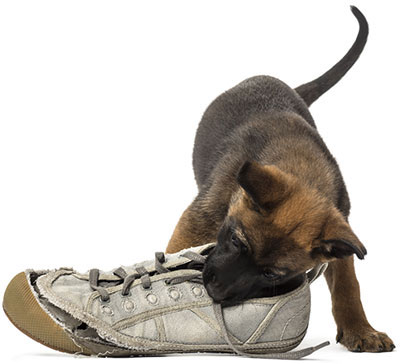 Welcoming a new pet to your family is a big and exciting event! Pets can change our lives in so many ways. Once they wrap their paws around our hearts, we are never the same. Their unconditional love and affection can create bonds that not only change our lives, but also save us in ways we never thought possible.
Welcoming a new pet to your family is a big and exciting event! Pets can change our lives in so many ways. Once they wrap their paws around our hearts, we are never the same. Their unconditional love and affection can create bonds that not only change our lives, but also save us in ways we never thought possible.
Before your new furry friend comes into your home, it is important to make the necessary preparations for this exciting and life-changing time. It will not only save you from pulling out your hair, but also from emptying your bank account on furniture replacement!
Do not underestimate the wiley nature of a curious puppy or kitty. They will never cease to both amaze and dismay you. Many pet owners put themselves in a reactionary mode, waiting until things are destroyed around the home, and then taking action to protect other items from being destroyed. For some, their homes end up looking like a disaster zone (why do I hear some men not complaining!).
The following tips will help provide you with a basic understanding of your pet's needs and will go a long way in creating peace and harmony (as opposed to a war zone!) in your home:
Tip #1: Use Playpens & Safety Gates
A child or pet safety gate or adjustable playpen can be a Holy Grail when your pup has you going nuts. They help create a safe space where you can easily keep an eye on them (and they cannot get into mischief). These are available at many stores such as Petco, PetSmart, Target, and Walmart for very reasonable prices. Most are adjustable and can be expanded to accommodate doorways of different widths.
Tip #2: Have Appropriate Toys For Your Pet to Play With & Chew On
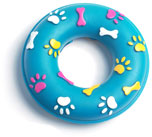
This is especially important. Dogs are much more likely to be destructive if they do not have the right toys and they are not encouraged to play with and chew on those toys. Often, pets will chew on no-no's simply because they are bored and don't have enough of their own toys to chew on. From personal experience, I can unequivocally say that a bored Malamute is a destructive Malamute on a mission. Encourage them to chew on their own toys, and if you see them chewing on something they shouldn't, then immediately divert their attention to their own toys and offer lots of praise.
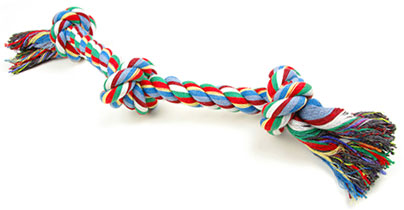 Pay close attention to which toys your pet gravitates too and enjoys the most so that you can stock up on more of them. Some toys may hold no interest to them and will not help keep them occupied. Spend some time helping them explore their toys, and getting them excited about chewing on them.
Pay close attention to which toys your pet gravitates too and enjoys the most so that you can stock up on more of them. Some toys may hold no interest to them and will not help keep them occupied. Spend some time helping them explore their toys, and getting them excited about chewing on them.
Kongs
A great way to keep your pup busy is to purchase a kong, fill it with some peanut butter (human grade, which contains no other ingredient than peanuts, NEVER the spray stuff in a can!), and freeze it. It provides for a very tasty and exciting treat, and keeps them busy for hours.
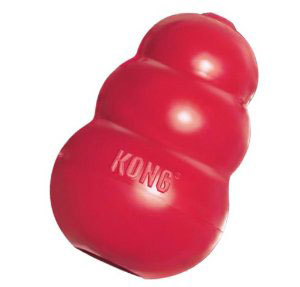
The artificial peanut butter sold for pets is filled with chemicals that are anything but healthy for your pet. ALWAYS check the ingredient list before purchasing treats. You should see only whole foods listed (except for the addition of natural preservatives).
Let's compare the ingredient list for a healthy peanut butter vs. a spray one that contains unhealthy ingredients:
| Artificial Spray Peanut Butter | Human-Grade Peanut Butter | |
| Milk Soybean oil Water Dextrose Maltodextrin Modified corn starch Whey Peanut flour Sodium Phosphate Salt Lactic acid Natural flavor Sorbic acid (as a preservative) Caramel color (approx. 50 chemicals) Annatto extract (color) Cheese cultures Rennet |
Peanuts ****** Many brands contain ingredients such as sugar, salt, and artificial colorings and flavorings. These are not healthy for you, and are definitely not healthy for your furry friend. |
|
Tip #3: Provide Enough Attention & Playtime
Our new furry members of the family need quality time and attention. Love and affection and bonding are all important key words here. The less attention you give your pup, the more they will try to get your attention (using all sorts of frustrating tactics). Mixing playtime with training is a great way to develop a healthy, strong bond with your pet, and help begin setting boundaries and rules.
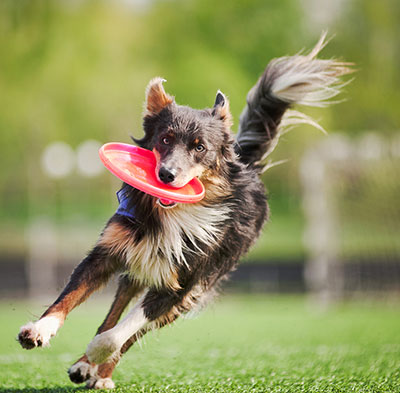 Tip #4: Provide Enough Exercise
Tip #4: Provide Enough Exercise
It is very important to ensure you understand the exercise requirements of your pet. Some dog breeds (such as Labradors, Huskies, Alaskan Malamutes, and Border Collies) are much more active than others are and require a substantial amount of exercise. For these dogs, a 15-minute stroll around the block doesn't cut it.
If your pet does not receive the exercise they need, they are much more likely to become bored, destructive, unfit, and overweight.
Use this daily opportunity to not only provide exercise for your pup, but for yourself too!
Tip #5: Pet-Proof Your Home
Our pets are naturally inquisitive creatures, especially puppies and kitties, sticking their noses into all sorts of unexpected places. Learn which kitchen, bathroom, garage, and general household items pose potential hazards and make sure they are off-limits.
Tip #6: Provide Training
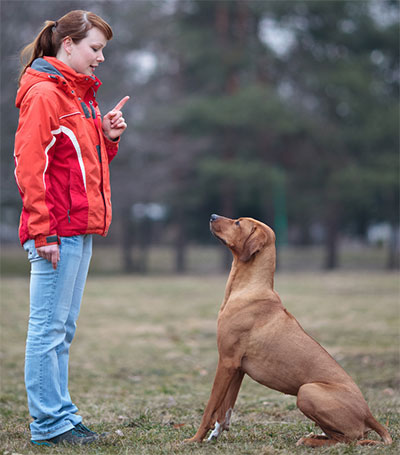 Well-behaved pets are not just "made" - they are trained. Taking the time to train your pet is a very important part of becoming a responsible pet owner. Blaming your dog or cat for its bad behavior when you have not trained them to do otherwise, is not the fault of your pet. That fault lies squarely on your shoulders. Training is not only important for behavior, but it also teaches your pet that you are the alpha and that they need to respect your authority.
Well-behaved pets are not just "made" - they are trained. Taking the time to train your pet is a very important part of becoming a responsible pet owner. Blaming your dog or cat for its bad behavior when you have not trained them to do otherwise, is not the fault of your pet. That fault lies squarely on your shoulders. Training is not only important for behavior, but it also teaches your pet that you are the alpha and that they need to respect your authority.
Proper training can also save your pet's life in challenging and emergency situations. Paying attention to your commands can prevent a dog from running out in front of a car, harassing or biting a stranger, jumping up on others, or even unintentionally playing too rough with children.
Many companies such as pet stores offer local training classes at very reasonable prices. Private sessions are also available, and it only takes a few sessions to learn the basics. Then it is up to you to be consistent in your daily training. You will be amazed at how quickly your pup will learn if you devote a little time up front (10-15 minutes each day). Begin early, and put both you and your pet on a regular training schedule.
RELATED ARTICLES
- Healthy & balanced pet diet
- Tips on choosing a healthy pet food
- Home-cooked diet
- Raw food diet for pets
- Doing raw right for pets
- Home-baked doggy treats
- Bones - nature's toothbrush
- Bone broth recipe
- Why pets are getting sicker
- Pet food recalls
- Fleas, ticks, & mosquitoes
- Natural dog grooming
- Pet dental care
- Pet dental kit
- Anesthesia-free teeth cleaning
- Pet vaccinations
- Declawing



